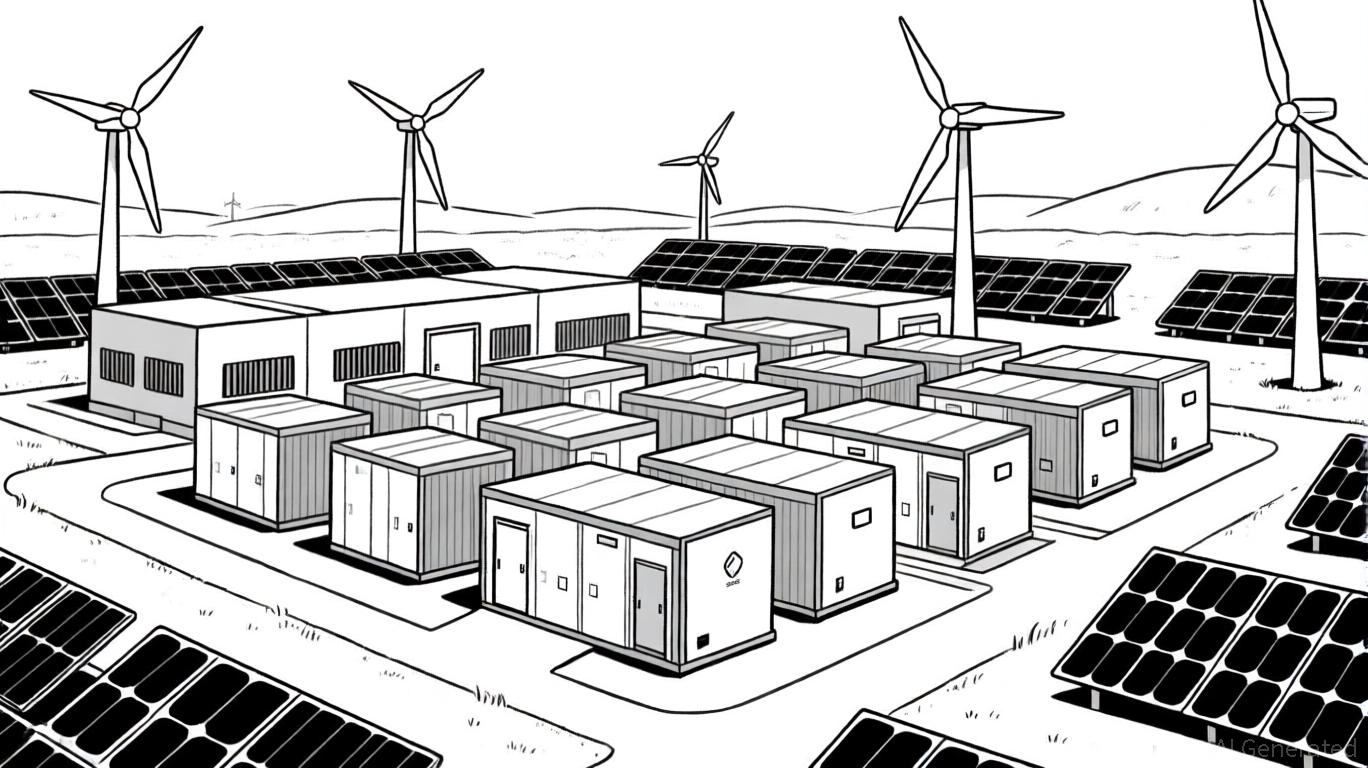-
-
- Access on: 2026-02-24 11:51:34 (New York)
Connect with us:
Connect with us:
October 7, 2025

Contributed by Henry Rivers
The energy transition is accelerating, and companies that can align their strategies with the dual imperatives of decarbonization and grid reliability are poised to capture significant value. Bimergen Energy, a rebranded entity formerly focused on broader energy production, has made a bold move to stake its claim in this evolving landscape. On October 7, 2025, the company announced a $200 million equity commitment to fund Battery Energy Storage System (BESS) projects across the United States, according to a Bimergen announcement. This investment, coupled with a prior $50 million secured in October 2025 for long-lead item procurement, as reported in a GlobeNewswire release, underscores Bimergen's pivot toward utility-scale storage and its ambition to become a key player in the U.S. energy storage market.
Strategic Positioning: Capitalizing on a High-Growth Sector
Bimergen's equity commitment represents 10–20% of the total capital required for permanent debt financing in BESS projects, a structure that aligns with industry norms for large-scale infrastructure development. The company's focus on BESS is not accidental. The U.S. energy storage market is projected to reach $31.36 billion by 2032, according to the GlobeNewswire release, driven by the need for grid stability, renewable integration, and the rise of energy arbitrage opportunities. Bimergen's decision to target key Independent System Operator (ISO) regions-ERCOT, PJM, and MISO-positions it to address critical grid constraints while leveraging regulatory tailwinds such as Investment Tax Credits (ITC) and state-level renewable mandates, as highlighted in a BeyondSPX analysis.
The company's strategic roadmap includes expanding its BESS pipeline to 3 gigawatts (GW) of capacity through joint ventures, alongside 1.64 GW of solar projects. This diversification into complementary renewables strengthens its value proposition, as BESS systems are increasingly deployed to balance intermittent solar and wind generation. Bimergen's recent stock buyback of 25.1% of its outstanding shares further signals a commitment to operational efficiency, a critical factor in an industry where capital intensity and regulatory risks remain high.
Competitive Landscape: Niche Focus vs. Industry Giants
While Bimergen faces competition from established players like Tesla and NextEra Energy, its niche focus on grid services and strategic partnerships offers a unique edge. The $200 million equity commitment from a leading European energy company highlights Bimergen's ability to attract international capital-a critical advantage in a capital-intensive sector. Moreover, its emphasis on contract-backed revenues through grid-balancing services reduces exposure to volatile energy prices, a risk that has plagued some peers.
The U.S. energy storage market is also witnessing a surge in demand from AI-driven data centers, which require robust and reliable power infrastructure, according to SolarQuarter. This trend, combined with the Federal Energy Regulatory Commission's (FERC) Order 2500, which promotes competitive bidding for transmission projects, creates a favorable environment for companies like Bimergen to scale operations.
Risks and Opportunities
Despite its strategic advantages, Bimergen's success hinges on execution. The company must navigate permitting delays, supply chain bottlenecks, and the inherent technical risks of large-scale BESS deployments. However, its early-stage partnerships and access to debt financing mitigate some of these challenges. The $50 million mezzanine financing secured in October 2025 is a case in point, as it accelerates procurement timelines and de-risks the path to permanent financing.
For investors, Bimergen's rebranding and capital allocation decisions reflect a clear-eyed focus on the energy transition's most promising segment. While the stock remains speculative, its alignment with macro trends-grid modernization, renewable integration, and decarbonization-positions it to benefit from a sector expected to grow by over 600% in global capacity by 2033, as noted by SolarQuarter.
Conclusion
Bimergen Energy's $200 million equity commitment is more than a financial milestone-it is a strategic declaration of intent. By targeting high-growth ISO regions, securing international partnerships, and leveraging federal incentives, the company is positioning itself to capitalize on the U.S. battery storage boom. For investors, the key question is not whether the energy transition will accelerate, but whether Bimergen can execute its vision with the speed and efficiency required to outpace competitors. Based on its recent moves, the answer appears increasingly affirmative.